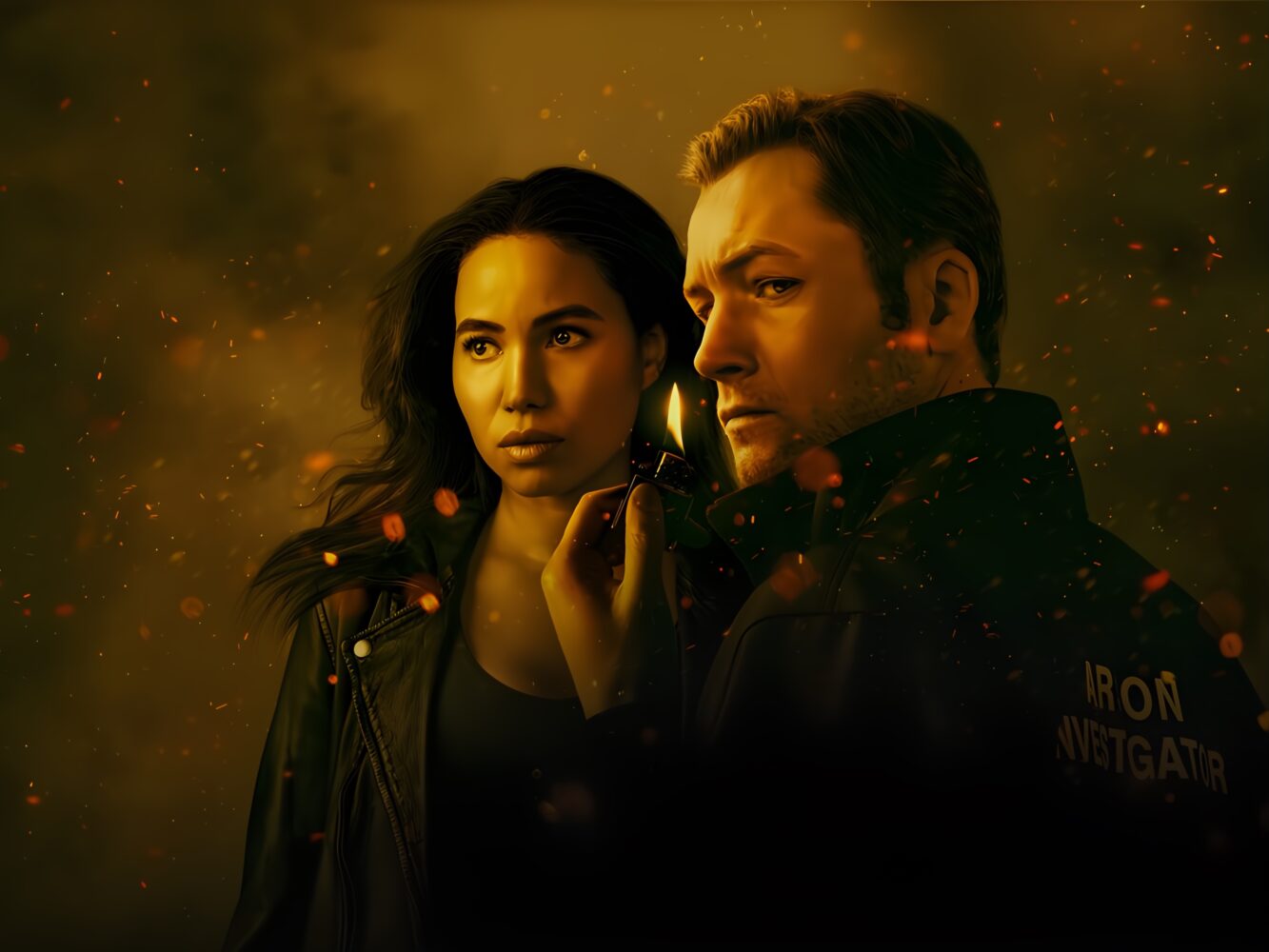At first glance, Smoke looks like another gritty, self-serious crime procedural: a traumatized ex-firefighter turned arson investigator, a disgraced detective looking for redemption, and a city choking on the smoke of serial blazes. But give Dennis Lehane’s latest Apple TV+ series three episodes to hit its stride, and it reveals itself as something far more thoughtful and hypnotic—a story about guilt, loneliness, and the scars fire leaves behind, literal and otherwise.
Smoke
The show opens shakily, no doubt. Taron Egerton’s Dave Gudsen seems caught between a mumblecore indie drama and a brooding noir. He’s got trauma, a mysterious hobby involving backyard pyres, and all the charisma of a sleeping bear—until he doesn’t. Around episode three, Egerton stops playing the shell of a man and starts unpeeling layers of performance that turn Gudsen into one of his most compelling roles to date. Jurnee Smollett’s Michelle Calderon arrives with a more immediate impact: sharp, angry, and nursing wounds of her own, from a ruined romance to a family legacy she can’t shake. Smollett delivers grounded intensity, never overselling, and always hinting at a deeper well of pain.
What elevates Smoke beyond its procedural peers is Ntare Guma Mbaho Mwine’s Freddy Fasano, a fry cook who says little but carries enough quiet sorrow to fill a cathedral. He’s introduced early as a possible suspect, but what follows is less a whodunit than a heartbreaking character study. Freddy’s scenes—tense, lonely, almost ghostly—are where the show becomes something more than case-of-the-week TV. His story fades into the background a bit too soon, but not before leaving a smoldering mark.
Lehane’s writing alternates between crisp and poetic, and while the early episodes struggle to juggle tone and pace, the story eventually clicks into place. Investigating the fires becomes a quiet war of attrition: Gudsen and Calderon comb through absence logs, chase red herrings, and piece together a conspiracy that feels as plausible as it is insidious. No car chases, no shootouts—just long conversations, quiet breakdowns, and the weight of lives undone by flame.
There are missteps. The first two episodes are a tonal mess, juggling backstory and mystery with uneven rhythm. Some supporting characters veer into cliché, and the central mystery—while smart—doesn’t quite justify the emotional buildup it demands. But when Smoke focuses on its leads, it works beautifully. The chemistry between Egerton and Smollett evolves naturally, their shared trauma becoming a quiet tether. And Mwine’s Freddy? He haunts the show long after the credits roll.
Smoke is not for everyone. It’s slow, sometimes infuriatingly so. But if you give it time, it rewards you with a rich, melancholy story about people who’ve been burned and are still trying to breathe. It may stumble at the start, but by the end, it stands as one of the year’s most thoughtful and emotionally grounded crime dramas.
Final Verdict: Smoke flickers at the edges but burns with unexpected clarity. A masterclass in slow-burn storytelling and character-driven tension, anchored by Egerton, Smollett, and a show-stealing turn from Mwine. Give it the time it asks for—you won’t regret it.







